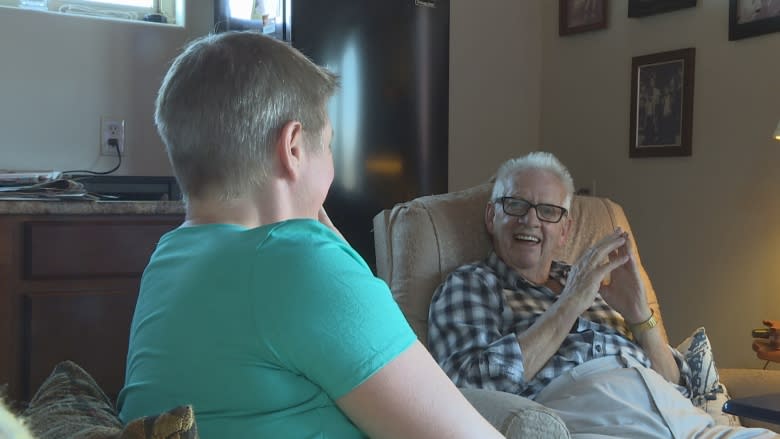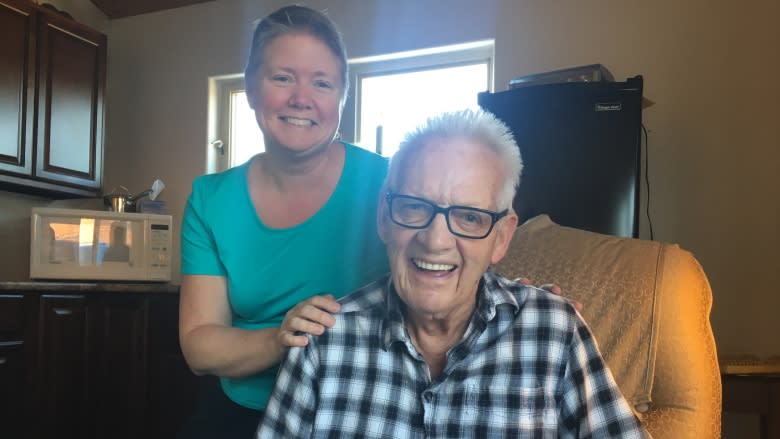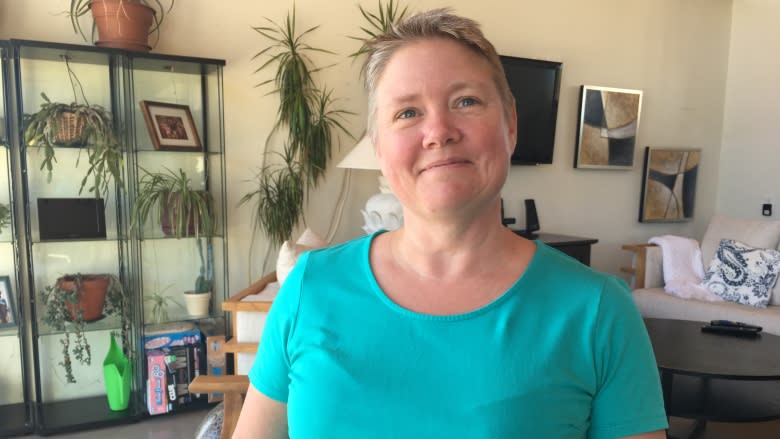Island woman says gap in service for dementia patients puts undue stress on families
A P.E.I. woman says the province could do more to support families caring for loved ones with dementia. She says it has cost her tens of thousands of dollars to make it a viable option to have her father live at home.
Rebecca Rioux's father Cleo Rioux has been living at her home in Wheatley River, P.E.I., for almost two years. Diagnosed with dementia in August 2016, he lost his driver's licence that fall. That's when things got a lot harder for the pair.
Knowing her dad would be on his chair in front of the TV all day while she was at work, Rioux began paying out of pocket for private care; individuals to come into the home daily for companionship and a regular lift into town to socialize with old friends.
She said she spent more than $20,000 on these services in 2017, but doesn't feel like families of loved ones should be solely responsible for covering the costs of this type of care.
"If the province wants people to live at home longer, the province has to recognize, whether you're living in Miminegash or Souris, as soon as that person loses their driver's license, who takes care of them? Who is offering the support?"
"If he needed help bathing, homecare would come and provide that service, it wouldn't cost me anything," Rioux said. "He needs help getting to Charlottetown, there's no help for that."
Doesn't qualify for homecare
The Alzheimer's Society of PEI said it hears weekly from caregivers like Rioux who are looking for companionship, respite and basic care needs for their loved ones with dementia — and covering those costs on their own.
Provincial homecare offers a multitude of services, from nursing care to bathing and dressing, but Rioux's father doesn't qualify for those services because he can feed, bathe and clothe himself. Because he can do all those things on his own, he doesn't qualify as a dependent, either.
"There's no payback for me other than the health and mental fitness of my father, there's no incentive, even if I could claim some of it and get it back that would be wonderful, because I would just reinvest it into my father's care. If people are paying for private care services, there should be a way to get reimbursed for that."
Province open to new ideas
The province's minister of health and wellness said much is done to support Islanders living with dementia and the department is always looking forward, and open to new ideas.
"We reassess all our programs continuously," Robert Mitchell said.
"Families at a certain time they just need that extra assistance, companies provide that assistance, again in a very respectful way, and as I said, we are always addressing our programs and seeing if there are ways we can improve them."
The province is weeks away from launching a new Seniors Health and Wellness Strategy — set to include not just long-term care, but also community care, respite care, home care and restorative care needs of aging Islanders.
A holistic approach
After several months on a wait list for a long-term care bed, Rioux got the news this month that there's a spot now available for her father.
She knows he'll be safe and well-taken care of there — but intends to continue investing her own time, and paying out of pocket for private services, to help ensure he has enough mental stimulation and access to the community outside those walls.
She'd like to see a more holistic approach taken to long-term care on P.E.I., that more closely resembles a wider community than a hospital or an institution.
"I don't think anyone walks into a long-term care facility and says, 'This is great,'" Rioux said. "So if none of us feel that way, why do we continue to think that's acceptable, why don't we take a chance and try to do things differently?"
'The baby boomers are coming'
She said patients like her father have a lot to gain from continuing day-to-day activities that give them purpose, such as shopping, gardening, spending time with pets and meeting friends for coffee.
She cites the example of "Dementia Villages," where people live in small homes with a community centre and shops and parks nearby, all within a secured space that residents are able to explore freely. Rioux said that model offers those aging with dementia a chance to retain some independence and control over how they want to spend their days.
"The baby boomers are coming," said Rioux, who hopes more people will start to speak up about different approaches to long term care.
"They are going to need care, and that group needs to start advocating and saying you know what, maybe that's not a good enough spot for me to end up in."
More P.E.I. News





